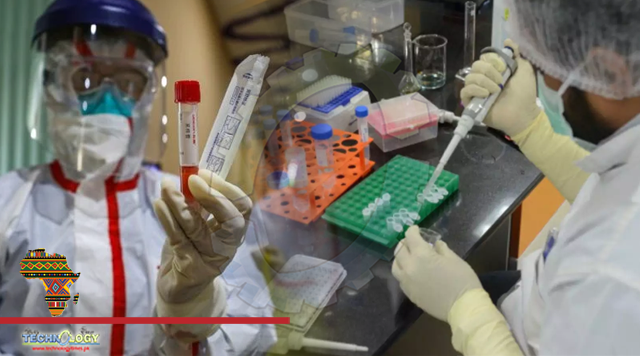Cape Town-based pharmaceutical company Biovac says it is negotiating with a number of international companies to produce their Covid-19 vaccines locally in South Africa.

Biovac chief executive Dr Morena Makhoana told the Sunday Times that the company has not signed any deals as yet as it is still waiting to see the efficacy of all of the available vaccines on the newer Covid-19 variants.
“The main challenge is that if in time some vaccines have better efficacy than others, government may be forced to purchase more of that vaccine that is suitable for South Africa.”
He added that how quickly Biovac would be able to supply extra vaccines to SA would depend on the complexity of the technology.
“If it’s complex, we can complete a technology transfer in a year,” said Makhoana. “If it’s straightforward, it could be six to nine months.”
Makhoana said that Biovac has excess capacity of between 20 million and 30 million doses, and the company hopes to have a decision in the next few months.
The group, which has 320 employees; says it has invested over R800 million in infrastructure and skills development including quality control laboratories and warehouses with significant cold-storage capacity.
Effectiveness of vaccine
The decision to hold off on signing a deal could be vindicated as a report published on Saturday (6 February) showed that the Oxford/AstraZeneca Covid-19 vaccine, of which South Africa received one million doses earlier this month, is far less effective against the South African 501Y.V2 variant.
The vaccine has previously been shown to have an efficacy of between 63% and 90% on two doses, but to date it was not certain how efficient it would be against new Covid-19 variants.
A study report on by the Financial Times on Saturday evening found that the Covid-19 vaccines locally “showed significantly reduced efficacy against the 501Y.V2 viral variant”.
AstraZeneca confirmed the report, saying its vaccine appears to only provide limited protection against mild disease caused by the “South African variant” based on early data from a study conducted by the University of the Witwatersrand and Oxford University.
Some good news is that the vaccine is expected to protect against severe disease and death thanks to its neutralising antibody activity similar to other vaccines.
AstraZeneca said it is currently adapting the vaccine to protect against the 501Y.V2 variant and that the clinical development is expected to advance rapidly.
Similarly, trials by Novavax and Johnson & Johnson both showed that their vaccine is less effective against the South African variant.
The Novavax vaccine was seen to be 89% effective overall and 86% effective against the UK variant, however in the trial where most people had the South African covid-19 variant, the vaccine proved to be just 50% effective.
A trial by Johnson & Johnson showed its vaccine to be 66% effective overall at preventing covid-19, but dropped to just 57% in South Africa.
Ready for rollout
Health Minister, Dr Zweli Mkhize, believes that South Africa is right on track to roll out its vaccination campaign, which is due to start in a few days.
Addressing Parliament’s Portfolio Committee on Health on Friday, Mkhize said the country is ready to give the first Covid-19 jabs to healthcare workers once the vaccines have undergone quality assurance checks.
He has described Monday, 1 February, as an exciting day after the country received its first consignment of Oxford-AstraZeneca vaccines from India.
However, the minister admitted that is has been a challenging exercise to manage the issue of vaccines, as many nations scrambled to get their hands on them.
“The global demand is the same for every country throughout the whole world. Everything is happening at the same time for every country, so that creates its own dynamics.”
The minister said the state has had to contend with the fact that not all vaccines have their efficacy results out.
However, Mkhize assured the committee that government is on course for the vaccination programme.
He said the vaccines are currently stored at Biovac and also at centres across the country where cold chain conditions are observed.
Security and training
Meanwhile, the state has beefed up security, while hundreds of healthcare workers have been trained to administer the jab.
Mkhize acknowledged that there will be hurdles as the country prepares for its largest inoculation drive, citing other countries where there have been breakages of vehicles or freezers.
Government hopes to reach 16.5 million people after the first two phase of vaccination and the rest of the population will be vaccinated in the third phase.
Mkhize announced that the State is expecting to receive nine million jabs from Johnson & Johnson, 20 million from Pfizer, 12 million from COVAX.
Meanwhile, government is also engaging with China, the Gamaleya Institute for Epidemiology and Microbiology in Russia and Moderna. “They are also finalising more deals and will be announced in due course,” he said.
Part of government’s work to produce its own vaccines is also underway.
Originally published at Business tech